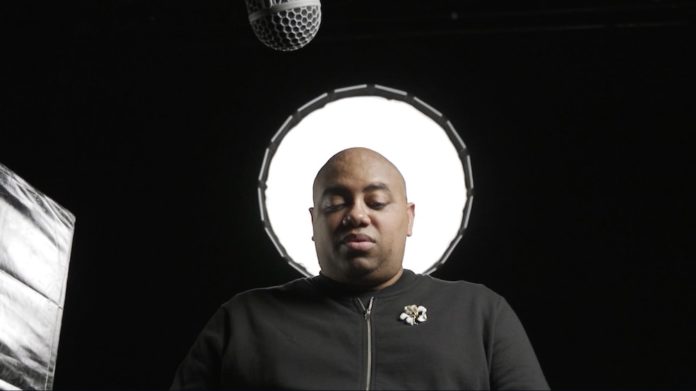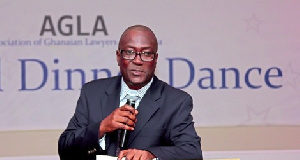The B Word is a compilation of interviews with a fascinating assortment of Black men exploring “beauty, Blackness, and the gay identity.” I’m not sure what I expected, but it was refreshingly insightful to hear the journeys, experiences, and perspectives of fellows from the community speak so directly about their lives.
Promotional materials for the The B Word describe it as “inspired by and devised from interviews with Black gay men across the DC, Maryland, and Virginia area who were asked to speak about the intersectionality of race, gender, and sexuality.” The documentary-style streaming format brings the men’s experiences directly into our personal frames of reference. Each one shares unblinking truths about themselves answering questions about various B words. From the beginning, one becomes aware that we’re in unusual terrain, filled with open and honest reflections and reactions that are spontaneous and achingly real. As the men answer the questions, a rhythm starts to develop and a comfort level sets in so that one can start to relate to each of them and ponder the same questions for oneself — starting with “When did you first feel that you were beautiful?”

The opening montage filled with images of fathers playing with their sons sets the tone and the scene. Early experiences shape us in all kinds of ways. A theme that ran through the responses was that the idea of being “beautiful” doesn’t usually apply to men, and each one had to grapple with what that truly meant. Another theme was the understanding that everyone wants to be wanted and desired. Writer Jared Shamberger, who wrote substantial segments of the piece before it was turned into an interview-style presentation, provided some of the pithiest messages and vignettes. “Everyone wants to be wanted, desired, chosen,” he concludes after sharing an early experience, “and not just be selected for convenience.”
The participants provided insights about other B words, such as “Brotherhood and Black Spaces,” “Broken—Not Feeling Beautiful,” “Bold—Attraction in Other Men,” and eventually “Biased—What I Communicate by How I Look.” The reactions ranged from some feeling beautifully supported in their various places/spaces to others who struggled with not just self-acceptance but self-love because of the community’s and society’s burdens prone to ostracize.
Through it all was the honesty. Damondre Green was particularly striking, confident and expressive, full of vitality and fun with a radiant smile and buoyant manner. When he shared that he inadvertently hurt someone with a callous remark, his entire demeanor changed as he turned quietly inward with remorse. It was a stunning moment.

Monte J. Wolfe was a joy to watch with his bold exhortations that men need to be in touch with their own tenderness and feelings, instead of the macho BS that purports to be strength. There is power in looking others in the eye, and true strength can also be stillness and silence.
Another theater persona seen in productions around town, Justin Weaks, shared that he feels empowered, understood, and relaxed in Black spaces. He noticed that even in crowds of people, he’s the one a stranger will approach seeking assistance or needing directions. He appreciated that he unconsciously emits a sense of being nonthreatening, approachable. Weaks was unrelentingly positive in dealing with his health status, life’s bumps and bruises, and the “social betrayal of being gay.”
And then there’s Alan Sharpe, the incredible founder of the African-American Collective Theater and creative influence for Brave Soul Collective, founded by Wolfe and others. Sharpe has been a staple in writing and presenting stories of Black LGBTQ+ communities. He described knowing he was “different” as a toddler and maintained a purposeful sense of self in each of his segments.
Shamberger had the idea for the performance in 2018–19, but he said “it became more urgent in quarantine as we experienced this aloneness and being disconnected and relying on more nontraditional ways of connecting. A show about community, identity, and relationship seemed important so as to help us to remember who we were, who we are, and who we could be.”
Also: “It’s important to be in control of your own story. If you are not telling your story other people will tell it for you.”

Video segments add a compelling energy to the passages bringing a visual excitement and presence to the segments. While helpful to reflect the compelling messages most of the time, some of the clips started to feel superfluous and unnecessary. Once the trust and rhythm of the interviews were established, we don’t need the brief cutaways to an empty stadium or classroom, tattoo track, or paint tubes to place the moment or reflect creativity. The speakers’ poignant words and memories and Shamberger’s no-nonsense delivery (including precious side-eye glances and multiple broaches) speak volumes.
The B Word is filled with compelling observations and insights. This personal, unvarnished, vulnerable truth speaking is hard to find in our often shrouded, private, and increasingly solitary lives.
Shamberger explains the need for Black men to be considered “beautiful” by stating that anti-Blackness is a longstanding global crisis. The Welders took this message to heart in producing this brave new work and packing their next season with Black playwrights. That is absolutely Beautiful.
The B Word presented by The Welders streams on demand through August 15, 2021. Tickets are available online.
ARTISTIC & CREATIVE TEAM
Playwright: Jared Shamberger
Director: Raymond O. Caldwell
Featuring: Cristóvão Alexandre, Keith Combs, Lawrence Evans, Charles H. Franklin IV, S. Zukeh Freeman II, Germaine Graham, Mario Gray, Damondre Green, Richard Jones, JR Russ, Juvaughn Scurlock, Alan Sharpe, Justin Weaks, Monte J. Wolfe
Director of Photography: Jabari Jefferson
Editor and Sound Design: Eric Wright Jr.
Production Manager: Farah Lawal Harris
SEE ALSO:
Jared Shamberger on the urgency of embracing ‘The B Word’ interview by Gregory Ford









